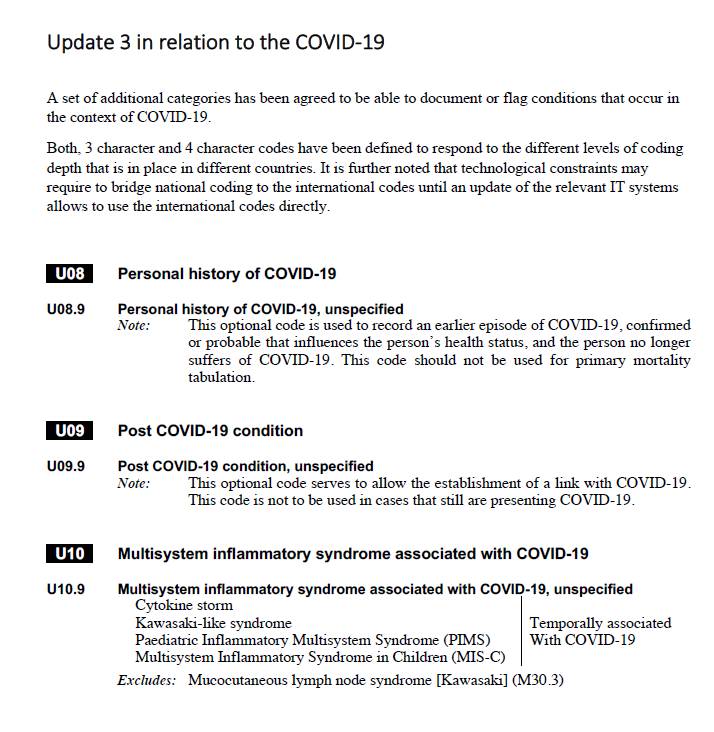Sorry if this is a noddy level question
@Dx Revision Watch but I’m confused by multiple requests being submitted.
Is this simply because of a lack of coordination within the NHS - different organisations submitting requests without checking if others are already addressing the issue.
Or is it multiple attempts by one organisation under different nuances of naming hoping that one proposal will be more acceptable than others.
In order to access the NHS Digital SNOMED CT Submission Portal to track the details and progress of requests, an account needs to be registered. Registered users would normally be personnel within the NHS or who work for providers of services to the NHS. If you don't fit these categories, it is possible to communicate directly with NHS Digital's terminology and classifications leads and they will submit a request on your behalf - this applies to requests for consideration of additions/changes the UK Edition of SNOMED CT and for consideration of additions/changes to the International Edition.
Because I am not an NHS employee and don't have a registration for the portal pages, I have dealt directly with NHS Digital and SNOMED International's terminology leads in relation to submitting requests in respect of changes for CFS, ME and submitting comment, as a stakeholder, in response to requests submitted by other parties for addition of Concept terms for SSD and SEID; and they kept me informed of the progress of these requests, as I cannot track their progress, myself.
All I can see is the publicly visible Request Search engine, which is here:
https://isd.hscic.gov.uk/rsp-snomed/user/guest/home.jsf
Although I can search for requests by key words or by date etc. the results don't display the names of the submitters of requests or the NHS Trusts (or other bodies) they work for, but I would imagine these are visible to those registered for access to the submission portal pages.
Before submitting a request and a brief rationale in support of that request, requesters are asked to check that the Concept term does not already exist in the most recent releases of the International Edition or the UK Edition.
The first request says:
"Post COVID-19 syndrome (please double check with clinical bodies)
(...) We would like to request concept(s) related to post COVID-19 syndrome or whatever the clinical community decide to call.
"My trust is the London COVID-19 centre and my respiratory consultants have expressed their view that currently there is a lack of post COVID-19 related concepts. These patients who either had COVID-19 (through confirmed PCR test) or a high suspicion of COVID-19. Nearly six months down the line, they started developing what they call “post COVID-19 syndrome”. Right now, we have been recording this using a list of the symptom concepts. You might want to work with the clinical bodies to author such concept request."
This suggest to me that it has been submitted by a clinical coder or other NHS admin. It acknowledges that the SNOMED CT terminology parent Concept is "COVID-19" - not "COVID" (as the second requester uses). It also suggests consultation with clinical bodies over terminology.
The second request has been submitted by someone who had evidently submitted, initially, via email, and was probably invited to register an account and re-submit their request via the portal in order that they can track its progress. It says:
"Description of the addition or change
Adding here to track the request via email for post-COVID syndrome"
There is no rationale included - but that may have been included in the email. It's unclear who has submitted this request but they haven't acknowledged that all existing COVID-19 related Concept terms in SNOMED CT UK Edition, the International Edition and the WHO's ICD-10 and ICD-11 use the term, "Coronavirus disease 19" or
"COVID-19" - not "COVID" or "Covid", as they have suggested. I think this is likely to have been submitted by someone unconnected with the first request.
The third request says:
"It would be helpful to have codes to recognise longer term effects of Covid-19. 'Suspected long Covid' and 'long Covid' would enable us to record.
Description of the addition or change
We are recognising long term sequelae of Covid-19 infection. Some patients had swab proven Covid-19, others suspected but not lab proven Covid-19. It would help us to audit those people with ongoing symptoms."
I suspect the third request has been submitted by someone unconnected with the first and second requesters but who also works in a clinical coding department or is an auditing admin. My first thought was that this third request might have been submitted by one of the authors of the Letter to Wellcome Open Research, but from the wording, I think it more likely it has been submitted by someone who works in coding/auditing.
The first request is marked as "In Progress" for its status - which I assume means it is in the process of consideration. The other two are still marked as "Submitted".


